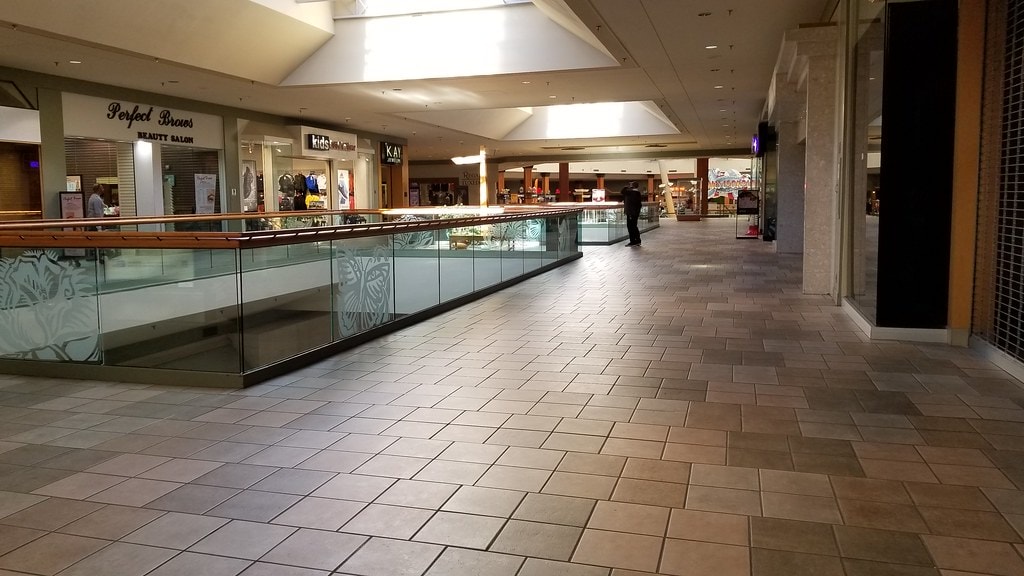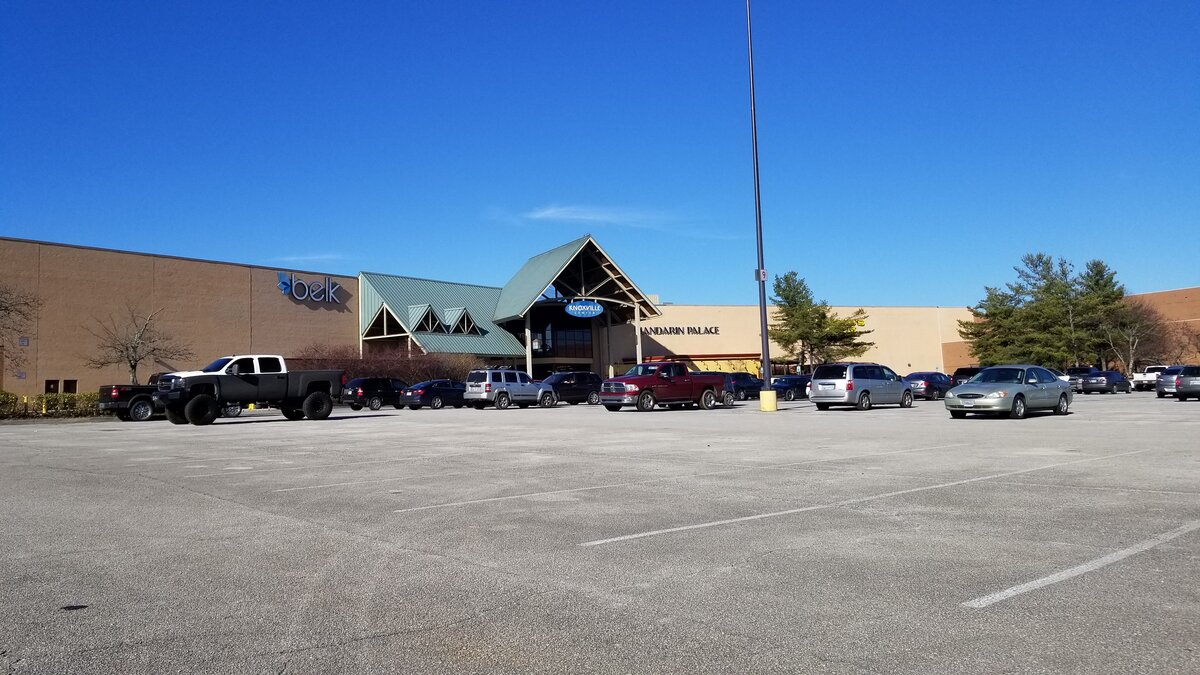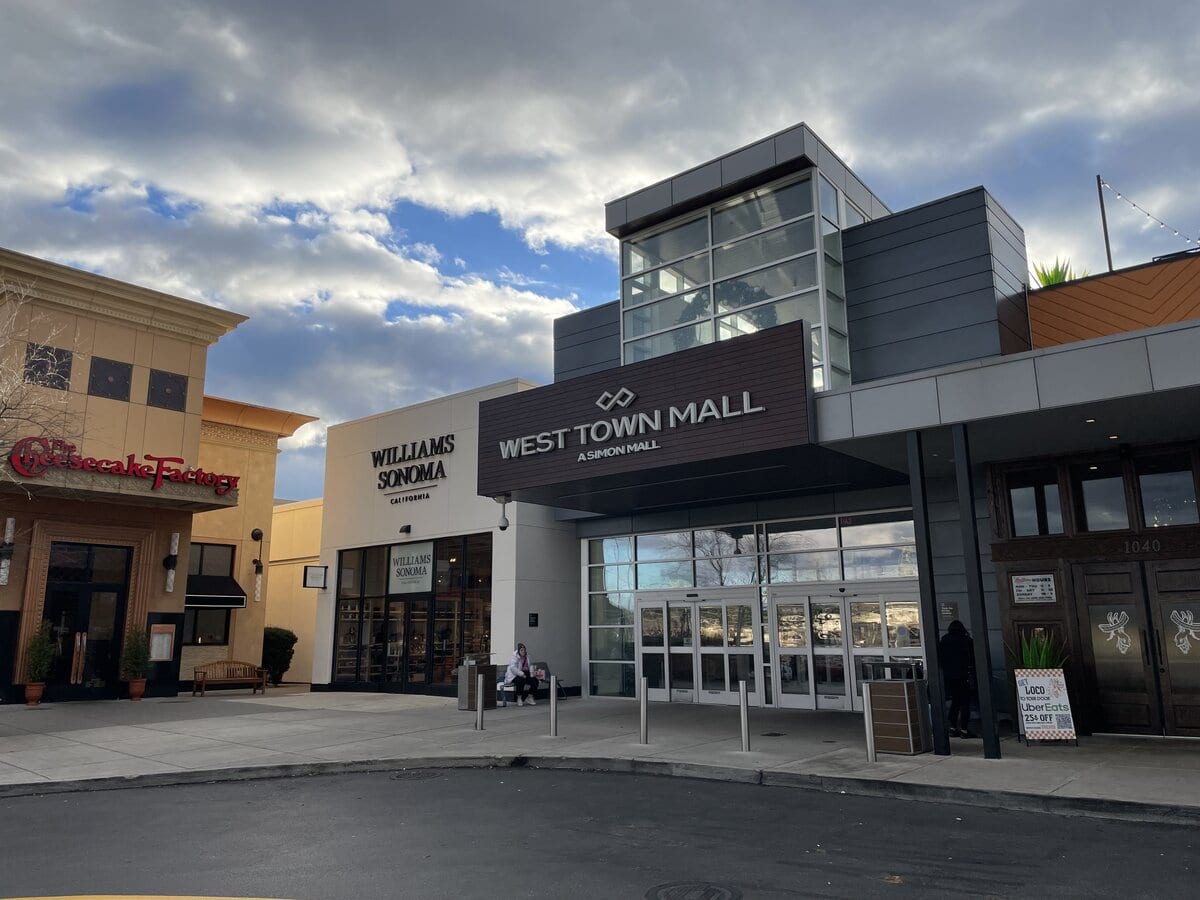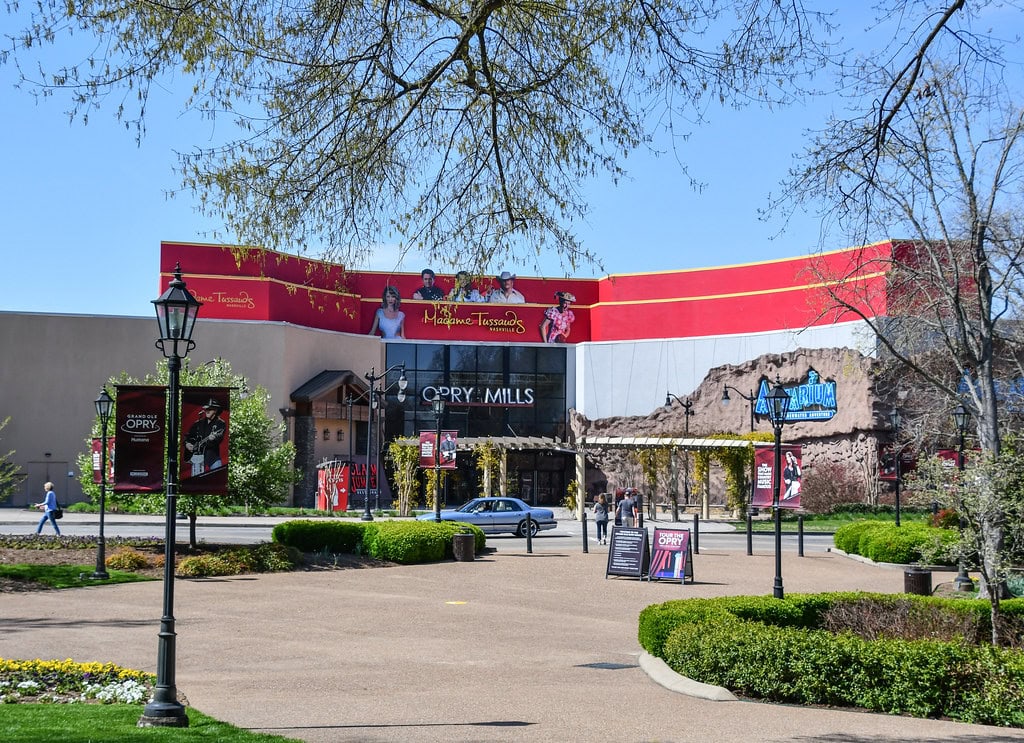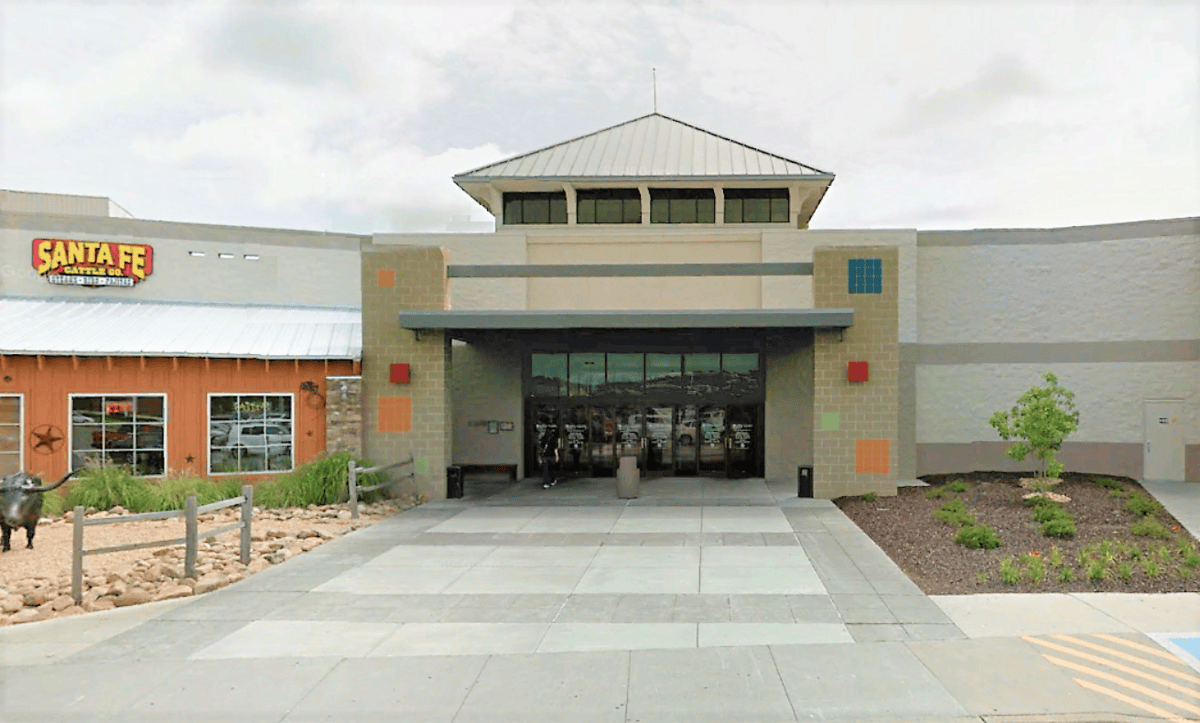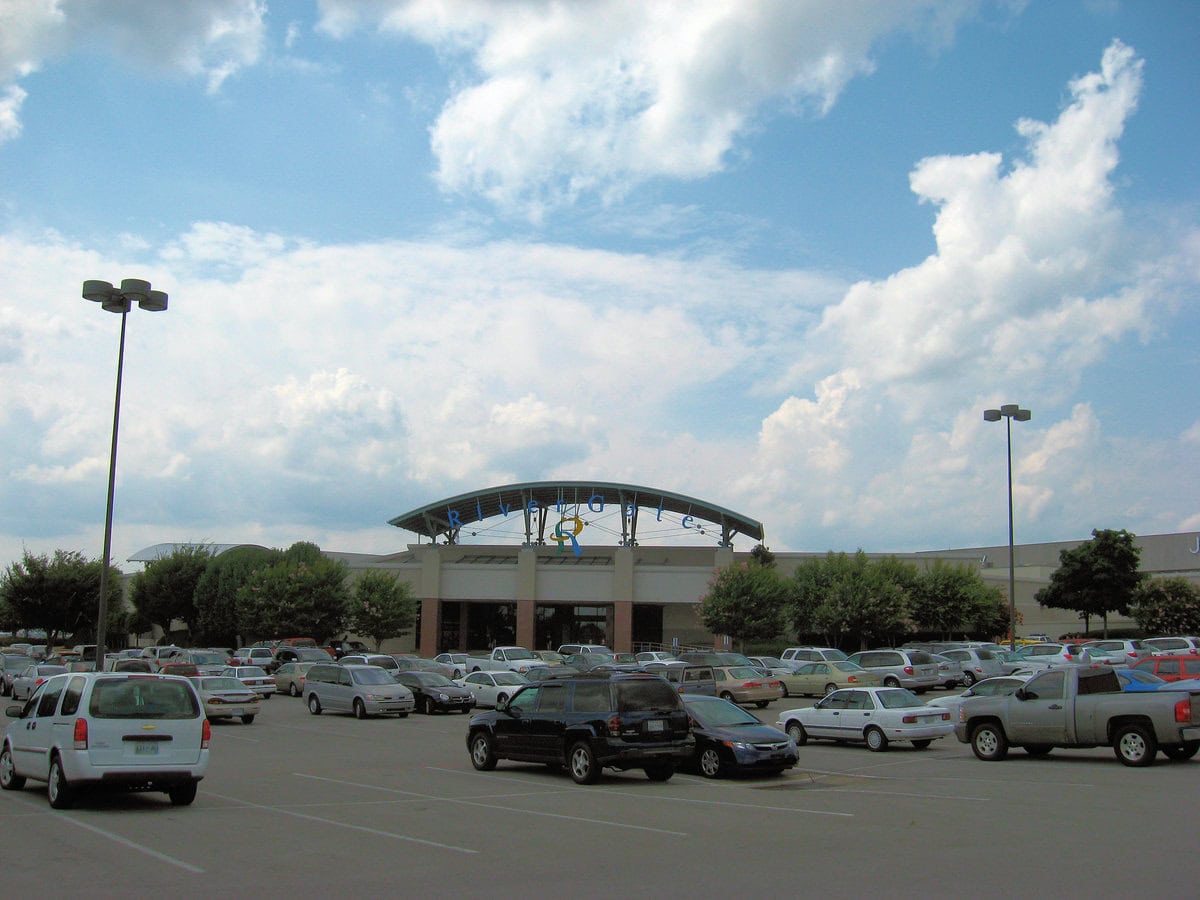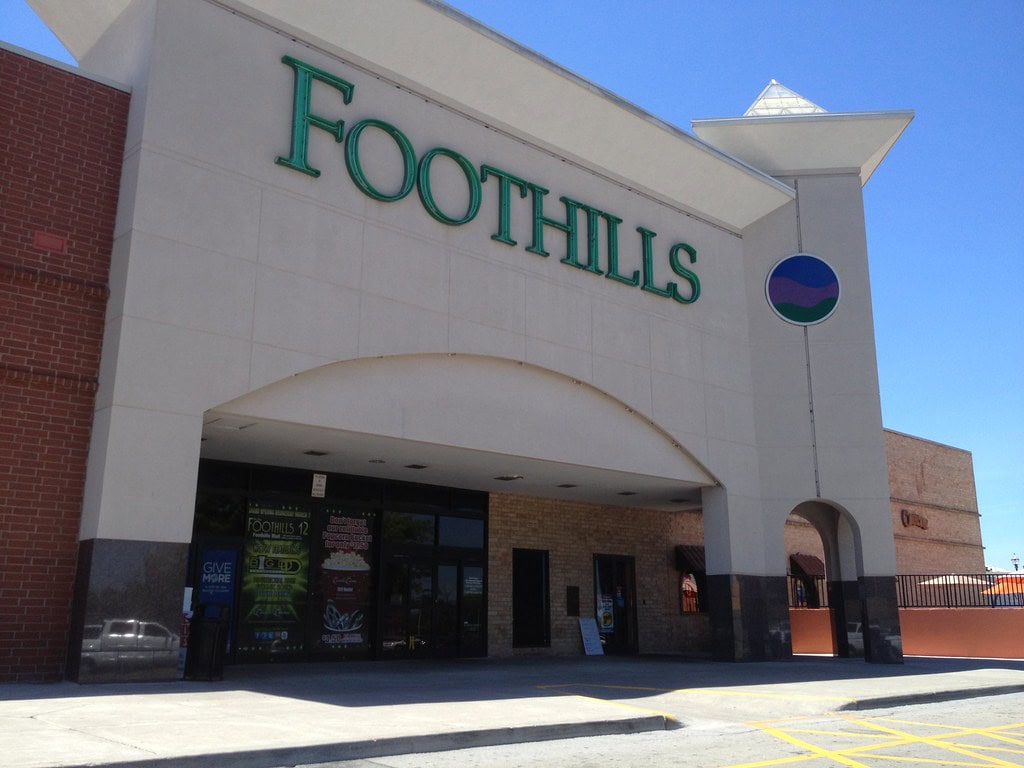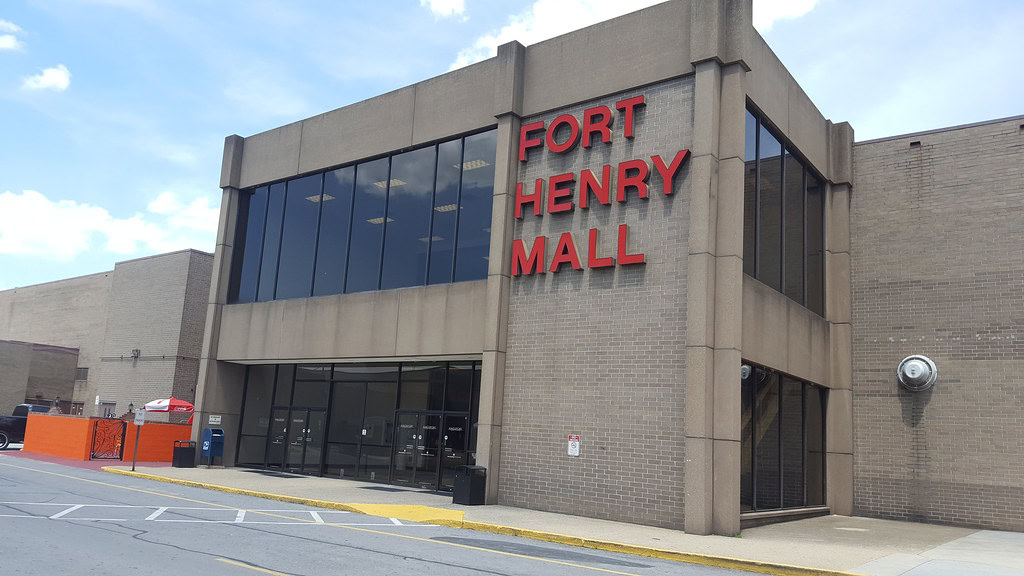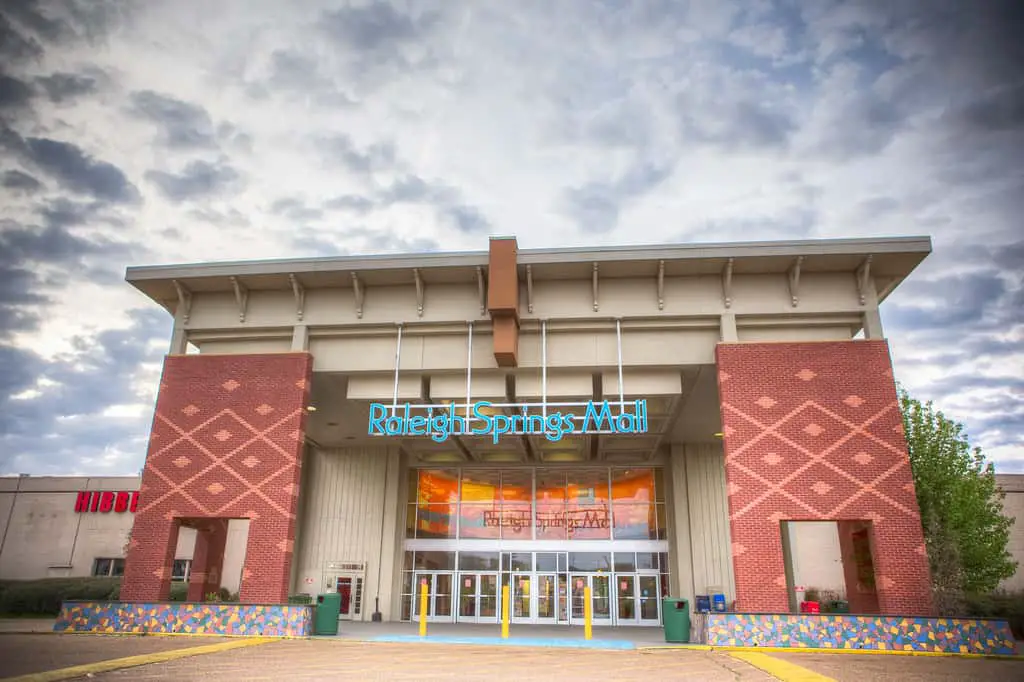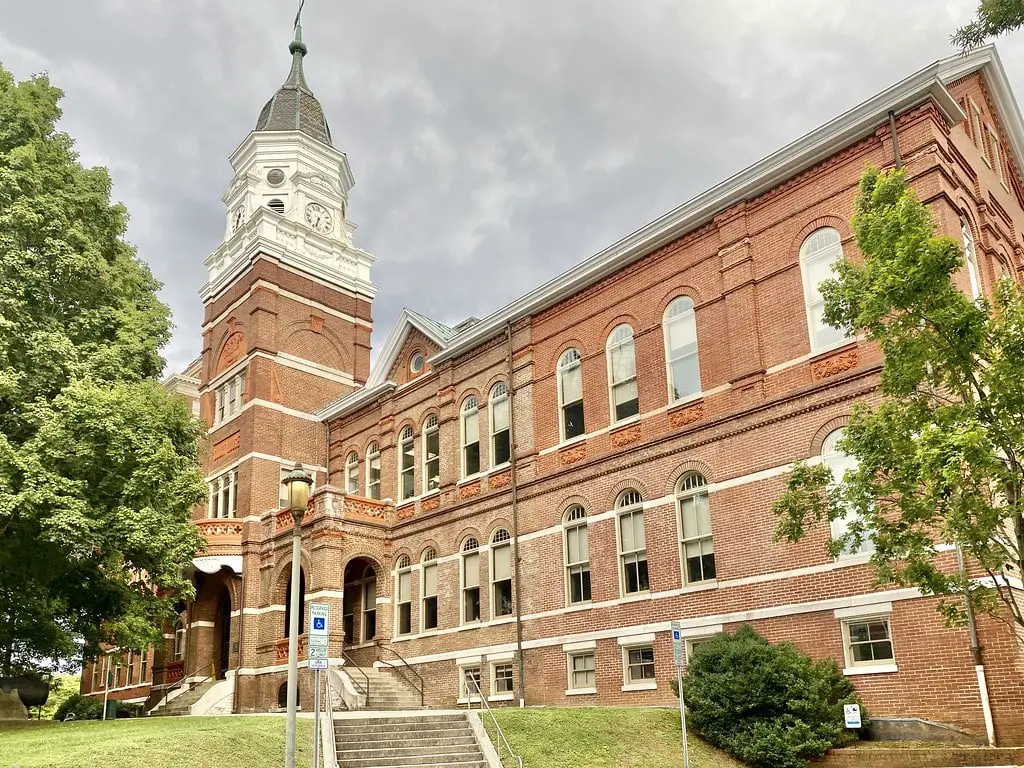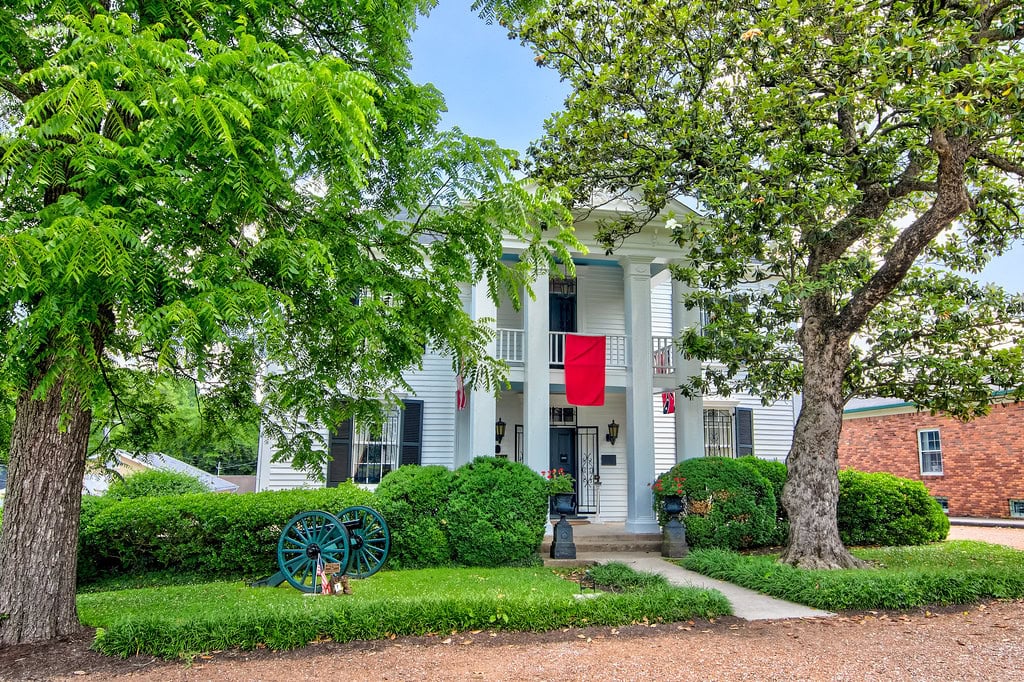East Towne Mall from farm to mall
On the northeastern edge of Knoxville, just off exit 8 of I-640, lay the land that would become East Towne Mall. At the time, it produced corn rather than commerce.
The Henry John Kinzel farm was the unlikely prequel to nearly a million square feet of enclosed retail.
In October 1978, the Knoxville-Knox County planning commission rezoned roughly 120 acres here for a regional mall, a deliberate east-side counterpart to West Town Mall.
The developer was Simon, the future Simon Property Group; the builder was Rentenbach, a local firm whose crews spent the early eighties turning pasture into poured concrete.
East Towne Mall, with that politely antique final e, opened on Wednesday, July 25, 1984.
About a hundred of its planned 170 stores threw open their gates at once, and mall officials claimed 25,000 people at the ceremonies and around 100,000 visitors by closing time.
The building offered about 964,000 square feet of leasable space on two levels.
Anchors were Miller's, Proffitt's, JCPenney, Sears, and Service Merchandise, with a seven-screen United Artists cinema tucked in as a junior partner.
Waterfalls and mall rats: East Towne's early years
For the first few years, East Towne was almost by itself at its exit, a bright white building surrounded by fields and highway ramps.
The mall had two floors that went along with the hill, so shoppers walked uphill as they went, and one main entrance surprisingly opened on the top floor.
Inside, the main area had a roof shaped like a tent. Below it, fake waterfalls ran past the food court balcony, where Cades Cove Cookout served mountain-style food with great views.
Other parts of the mall also showed off local style: a pretend old-time Cades Cove, a University of Tennessee area in school colors, and a Trout Court that made people think of mountain streams.
Teenagers from North and East Knoxville quickly made the mall their own.
At East Towne 7, they watched The Karate Kid, Indiana Jones and the Temple of Doom, and Red Dawn, then slowly walked around the railings and the food court.
Record Bar, Spencer Gifts, The Limited, Express, and Merry-Go-Round offered music, jokes, and clothes in about equal amounts.
What used to be farmland became, almost overnight, a cool place to hang out, with the waterfalls in the main area as its unofficial welcome spot.
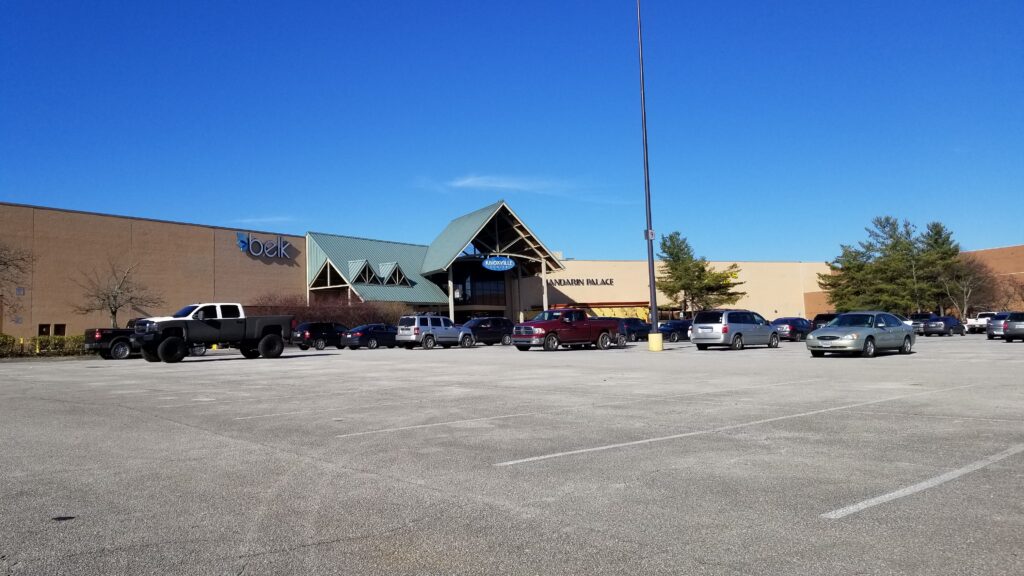
Anchors, outparcels, and an east-side boom
By the late eighties, the mall's big stores were already changing. Miller's, a local store, was taken over and renamed Hess's, as part of a bigger trend in the area.
In 1992, Hess's left Knoxville; the main spot at East Towne was given to Dillard's, which opened there the same year, so all five main parts of the mall stayed open.
Outside the mall, things changed slowly at first, then very quickly. Back in 1991, there were not many other businesses around East Towne.
Then a Phar-Mor discount store opened near Sears, followed by Circuit City. Toys R Us opened on the hill above JCPenney.
By the mid-nineties, the spaces around the mall were filled with Applebee's, Wendy's, Just for Feet, Pier 1, and others, turning the mall into a busy shopping area.
Across I-640, another shopping center added Food Lion, Home Depot, and another Regal theater.
For several years, new movies played at both the mall's theater and the separate one nearby, until the off-site theater shifted to discount showings and closed in the early 2000s.
A Sam's Club opened on a lot to the southeast in 1998, making East Towne feel less like just a mall and more like a small shopping city.
Renovation, rebranding, and the slow decline
By the mid-nineties, competition with West Town made East Towne update its look.
In 1997, Simon led a renovation that kept the main structure but gave new entrances, floors, and paint, made the court themes more focused on a Tennessee mountain look, and, importantly, took out the waterfalls under the food court.
The new name, Knoxville Center, replaced East Towne Mall on the signs and was supposed to make the place feel more modern and less old-fashioned.
On paper, it worked. In the early 2000s, the mall listed about 964,000 square feet, five big department stores, and around 120 smaller stores.
Proffitt's became Belk in 2006 without much notice. Service Merchandise had already closed with its catalog stores; its two-level, about 54,000 square foot space became The Rush Fitness Complex and then a Gold's Gym.
The big stores were huge, from just over 108,000 square feet for Belk up to almost 180,000 for Sears, with Dillard's and JCPenney in between.
Being big did not mean being safe. In 2008, Dillard's said the Knoxville Center store was not doing well and closed it after a short clearance sale.
Old Navy moved to a nearby shopping center, and when Circuit City went out of business, its separate building was left empty.
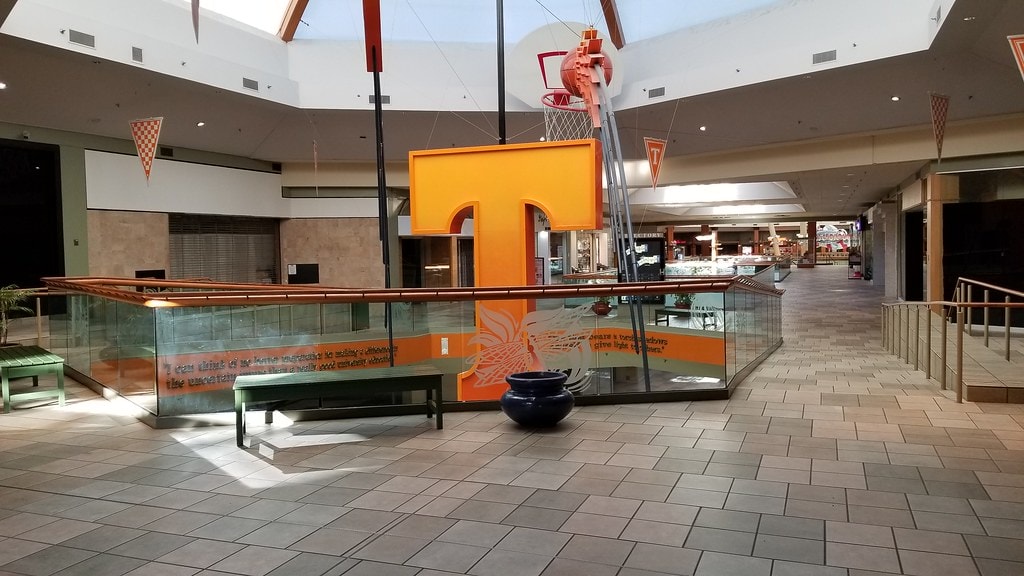
Fire sale owners and retreating department stores
After years as a mid-tier asset for Simon, Knoxville Center was spun into Washington Prime Group in 2014, a portfolio filled with malls that were no longer top of the line.
By August 2016, the property had been sold to Knoxville Partners LLC for about $10 million, a price that would have been unthinkable during the boom years.
In 2017, the new owners tried to lean on memory, restoring the East Towne Mall name on leases and internal documents even as exterior signs and most marketing continued to say Knoxville Center.
Locals had never really stopped using the original name, so not much changed in everyday speech.
The anchors, however, began leaving in sequence. JCPenney announced in March 2017 that its Knoxville Center store would close as part of a 138-location nationwide retrenchment; the doors shut on September 17.
Gold's Gym, housed in the former Service Merchandise box, followed with a final workout on May 16, 2018.
Sears, itself in deeper trouble than either, joined another round of national closures and left on September 2, 2018.
By the end of that year, Belk was the last traditional department store anchor left holding down the map.
Last leases, dead mall rituals, and demolition
By October 2019, perhaps a dozen inline stores and a few services were still trading. Belk announced it would close on November 16, 2019, removing the final department store.
Two weeks earlier, on October 31, the mall's owners had confirmed what everyone already suspected: Knoxville Center, or East Towne, would close, with all leases ending January 31, 2020.
The mall cinema, a junior anchor since 1984, shut down the day of the announcement.
A few tenants stayed a little longer to hold clearance and closing sales in the empty halls. On the last day of January, after almost thirty-six years, the doors closed for good.
Outside, nearby businesses kept going, but the two-story mall itself was now closed off and empty on the hill.
The owners included the parent companies of Belk and Dillard's, along with two other companies, Millertown Pavilion LLC and TF Knoxville, TN LLC.
A plan to turn the property into a Knox County government center fell through because it would have cost more than 150 million dollars.
In September 2020, Hillwood, a company connected to Amazon, asked to rezone the 78-acre site so it could be used for light industry.
They planned to build a 220,000 square foot commerce facility, with redevelopment costs of almost 70 million dollars. Demolition started on April 7, 2021, at the old JCPenney.
Within a few months, D.H. Griffin's machines had torn down most of the mall and flattened the land for whatever would be built next.
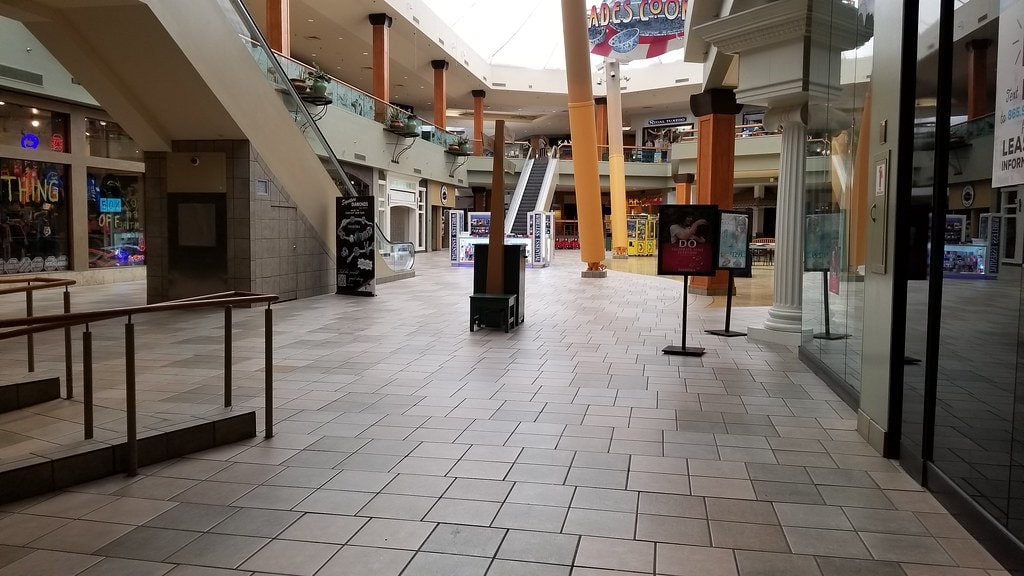
Amazon DNA6: the afterlife of Knoxville Center Mall
In March 2021, the combined 78-acre property was sold for about 22 million dollars to ET Knoxville LLC, a company connected to Amazon's building plans, and construction replaced the circle of shops with one large rectangular warehouse.
The new building, about 220,000 square feet, was called DNA6, an Amazon delivery station for the last part of delivery, where packages from bigger warehouses are sorted and sent out to neighborhoods.
DNA6 was supposed to be busy by 2022, but building costs and delays in getting materials left it unfinished and empty until well into 2024, a concrete shell where Knoxville Center used to be.
When the station finally opened in late October 2024, Amazon announced over 250 jobs paying at least 18 dollars and 50 cents an hour, plus work for about 700 drivers who work for its contractors.
More than 80 electric delivery vans started out at launch, with room for well over 100.
For many East and North Knoxville residents, East Towne had been the local hangout, a place with waterfalls, Trout Court decorations, and teens walking around the upper level.
Now the Kinzel farm's old fields have a new routine: pallets, bar codes, and the quiet arrival of packages on porches, the mall's history squeezed into a delivery window and a tracking number.
